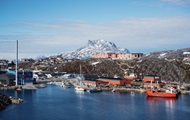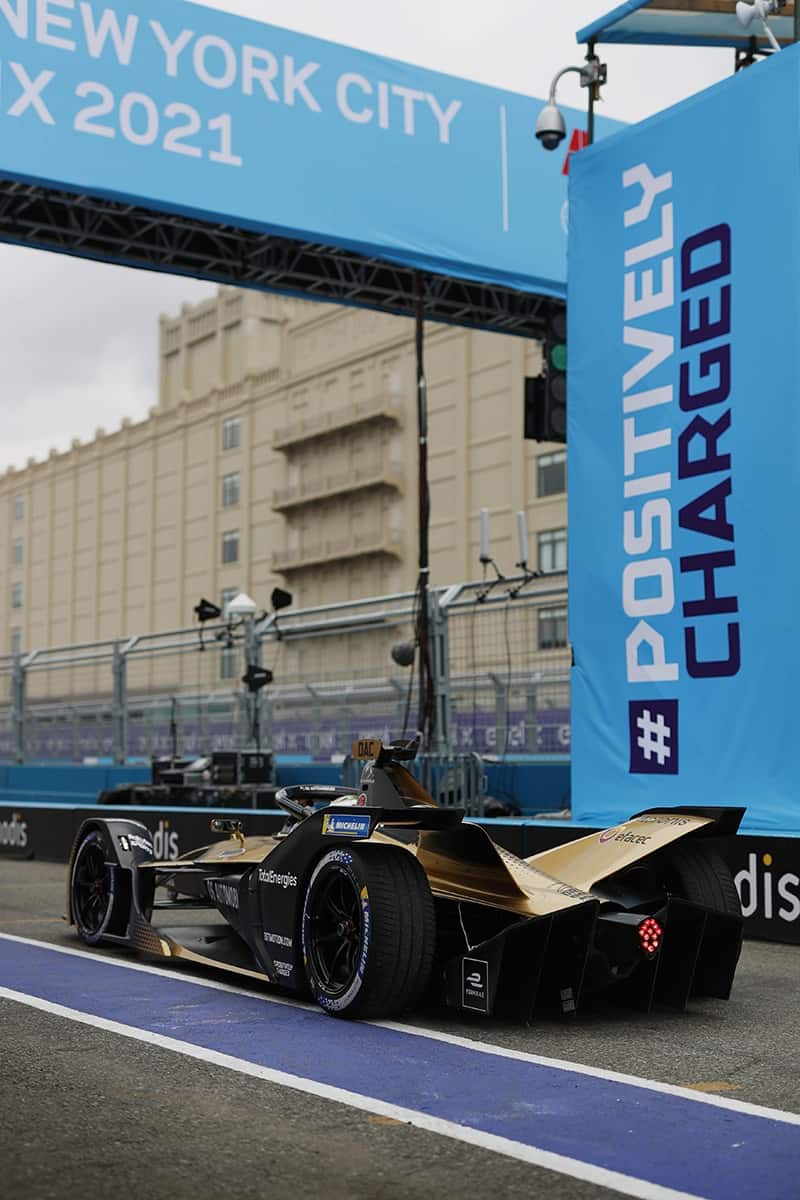Malin Susanne Løkås Westermann and Jacob Bødtker believe that social media can be of great importance in this autumn’s parliamentary elections. Photo: Olav Olsen
––
Social media does not provide “slacktivism”, but strengthens political engagement. It could be important in this autumn’s election.
—
On the phones of Malin Susanne Løkås Westermann (25) and Jacob Bødtker (23), signs of frustration, enthusiasm and fighting spirit are constantly appearing. Young people share quotes on social media. Quotes made by politicians who they believe do not understand their situation, for example in the housing market. Signs of racism are being cracked down on.
Social media has become a key arena for political participation. At the same time, a myth has arisen that social media only creates “slacktivism”. But it is not true that the screen makes you more passive in political engagement. This is what researchers claim in two new books. On the contrary, social media can make more people show up physically at political events. It could send unforeseen waves into this autumn’s election campaign.
Facebook invites to political networks
Young people participate more often in internet campaigns than older people. But young people participated about as often as older people in physical demonstrations between 2011 and 2016. The book shows that The youth, which comes in the fall.
– It has been a thesis that social media only provides lax forms of political participation. But it is of great importance that people are reached with information, says Kari Steen-Johnsen. She researches political participation and social media at the Institute for Social Research (ISF) and has contributed to the book.
That Facebook makes people more active also outside the screen, we also saw in the last election in 2019. More than one in three state that they have friends, relatives or other acquaintances on Facebook who ran as candidates for the local elections in 2019. Just as many have become known with candidates through Facebook. Ssocial media connects people to politicians and political networks in a way that would not otherwise take place. It claims the newly published book Local elections 2019: New municipalities – new elections?
A compilation of interviews with 85,000 young people across the site point to the same thing: The Internet means that people participate more in demonstrations, contact politicians, hold voluntary positions and discuss politics.
Israel and shitty apartments
The couple in their 20s Aftenposten meets, has the impression that in recent years there has been increased commitment to take to the streets with banners among their peers. The pandemic has exacerbated this, they believe.
– People in my circle of friends use social media to spread information and get both national and international news faster, says Westermann.
Social media will speed up a number of issues in the election campaign, the two believe. The most extremist parties may want to play the racism case against each other. Increased differences between students can also wake up the young people in the election, Westermann and Bødtker believe.
The two refer to the large Instagram account “My shitty apartment”. Here are pictures of dilapidated, small and expensive apartments during the campaign: “Tired of paying the rich.”
Some issues are simmering and can speed up the election campaign, think Malin Susanne Løkås Westermann and Jacob Bødtker. Photo: Olav Olsen
––
The bomb joker
They also believe that the fighting between Israel and Hamas this spring created itself through videos that were spread.
The previous election was also strongly influenced by a case that came from social media. A separate toll party appeared as a joker in the local elections and positioned itself in several major cities. Many did not see the uprising coming, and it shows that social media must not be dismissed, says researcher Steen-Johnsen.
– One should not underestimate likes and sharing and what happens on social media. It is captured more and becomes issues that politicians must deal with, she says.
- The campaign “Reduce rent” spreads photos on Instagram:
Prime Minister’s Office at Instastory
At the same time, the young couple points out that a lot happens in closed networks and that it can create a tough culture. The report shows that young people to a greater extent than older people are recruited by friends for actions.
An interview NRK did with the prime minister in March, was widely spread. Erna Solberg was asked what she thinks about the fact that many cannot afford their own clothes and food in the pandemic. She replied that it was demanding, but: “Did they really afford it before?”
Many of Westermann’s Instagram contacts shared this quote by Solberg on Instastory, she says. The statement has probably offended many young people with bad advice, she thinks. Young people often react to statements that go against themselves and use satirical drawings and “memes”, she believes.
– It is a scary method, that can be quite ugly now in the election campaign, says Westermann.
– It is constantly happening that individual quotes appear. You agree on personalities, says Bødtker.
- Erna Solberg’s statements were spread on major social media accounts:
Researcher Steen-Johnsen believes that closed forums can create a group dynamic. Here, contradictions between different groups and positions are reinforced, she believes.
– We have seen such polarizing effects of social media even more clearly in other parts of the world. For politicians, there is a risk there. You should hit well when you mean something and not be misunderstood.
Korona overshadows the agenda
Ketil Raknes is more in doubt that there may be some large and sudden mobilizations in this special year. He researches political communication at Kristiania University College and has previously been central in SV.
– I know that the political parties have been frustrated that there has been no room for other issues than the corona, Raknes says.
– The environmental issue has disappeared completely, and MDG probably hopes that it will get a boost. The FRP may hope that someone will start talking about immigration again. FRP’s crisis is just as much an agenda crisis, he says.
He believes the corona can offer more debate about inequalities and make housing policy explode. But he does not think there will be a new “toll revolt” or that identity issues will be big.
– It was a tax revolt. But right now we do not see a nascent irritation around it. #Metoo cases and racism cases often become waves that go a little over. If social media is to become important, a big issue must be on the agenda. A large-scale economic crisis or terror.
–


